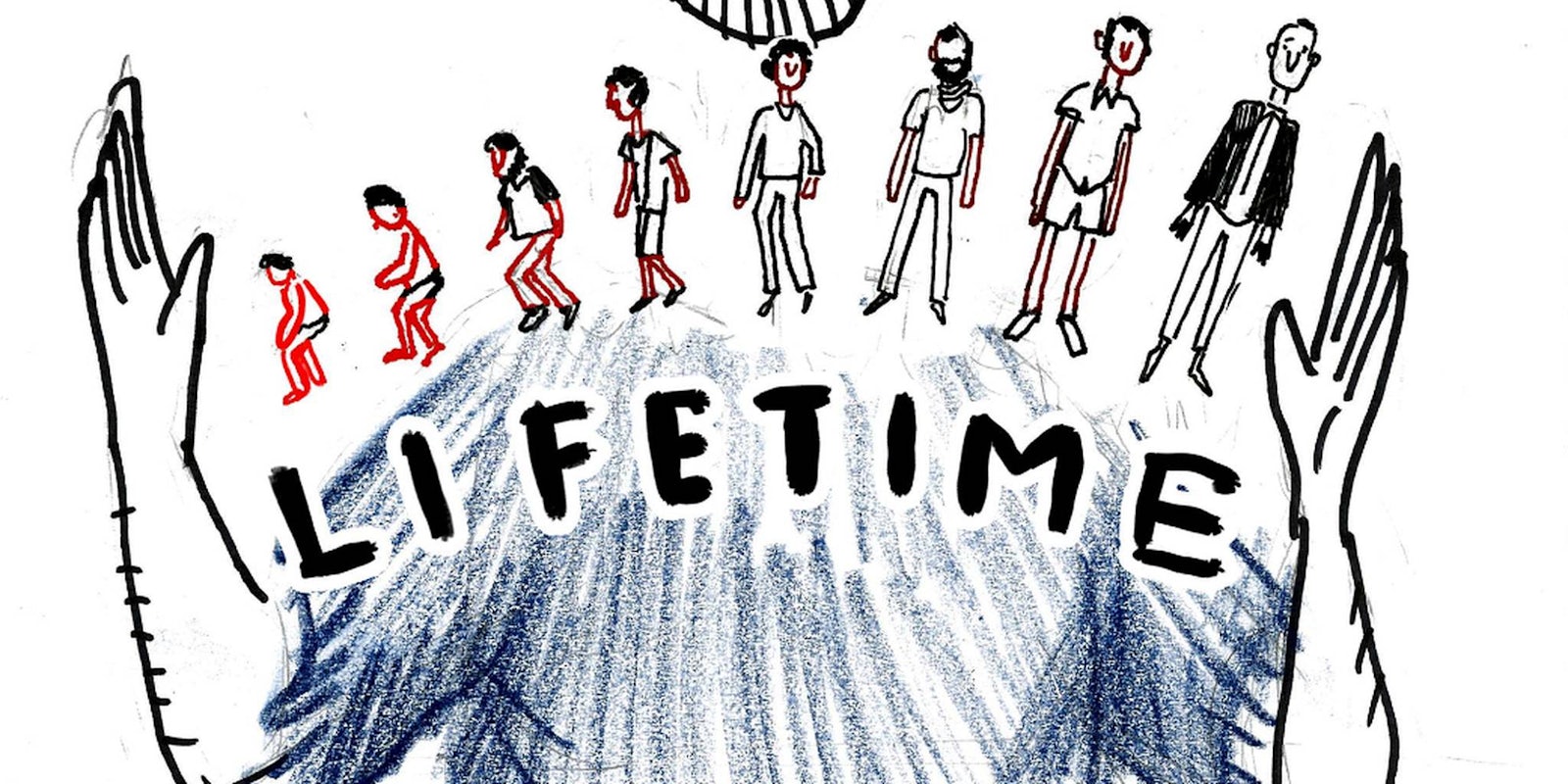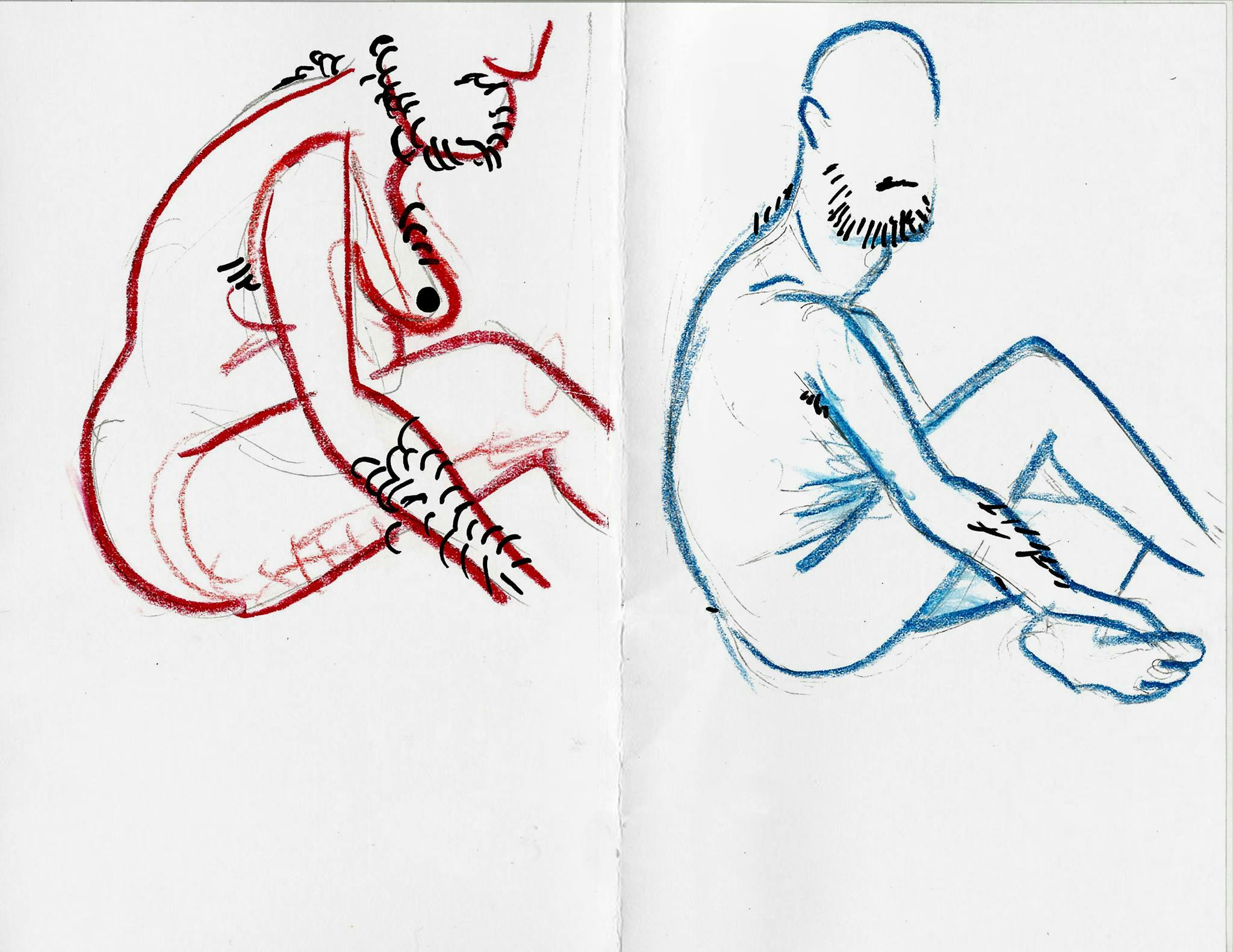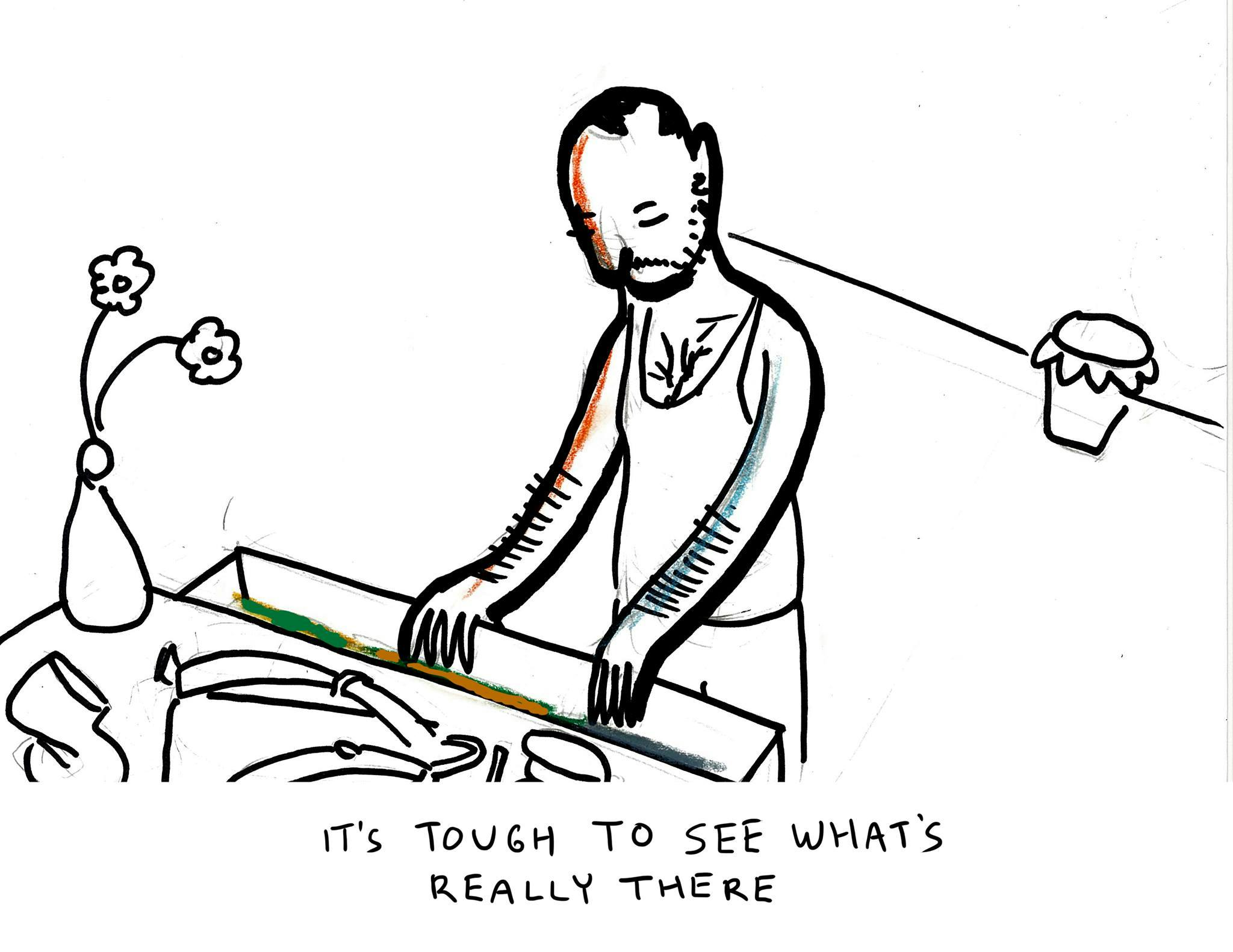Body image struggles are often considered women’s issues. Even the most “inspirational” of beauty ads, like Dove’s commercials, convey women are the ones who need saving. But contrary to popular belief, men struggle, too—they often just don’t know how to talk about it.
Illustrator Dav Yendler, 32, decided to tackle this head on in his narrative “My Bod.” In a series of 171 drawings on Facebook, Yendler tells the story of how he has personally battled looking at his body in the mirror.
“I’ve been really struggling with not being able to recognize my body in photographs and mirrors pretty much my whole life,” Yendler told the Daily Dot. “That was my private issue no one needed to know about. [But one day], I was like, ‘No, it’s time to talk about it.’ I’m sure I’m not alone—well, actually I had no idea if I’m not alone or not—and I needed to sort of get these things out.”
Yendler first noticed his confidence slipping when he had an encounter with a pair of shorts that were ill-fitting and fell apart literally on his body. Something clicked and he realized he didn’t have the body he was used to, that age and gravity had snuck up on him, and those shorts were the breaking point for viewing his body as inadequate.
It was realizations like this that inspired him to create “My Bod,” not just for himself but for others who struggle with body positivity. First, he would draw how he emotionally thought he looked, then he would move to the mirror and draw what he saw in the reflection.
“The process of making these things involved me having to draw my body at every angle, at every emotion, and at every time, and by the end of it, just the nature of making this massive 171-slide thing was about having a better sense of what I looked like,” he said.
Yendler feels that an internal battle of emotions—combined with societal expectations—fuels insecurity, and creates a negative body image that others don’t see. It’s also something that’s been forced upon women—and that we’ve been told has been forced upon women—which, in a strange way, makes it hard for men to even want to recognize.
“It’s quote-unquote feminine, or womanly, to talk about your body’s image—but I think that’s some patriarchy shit right there,” said Yendler.
According to “The Body Project,” a study done by Bradley University in Illinois, over 90 percent of men struggle with body dissatisfaction, negative opinions, or negative emotions toward one’s self.
“I think we’re made to feel that it doesn’t matter and that there are other more pressing issues,” said Yendler said of men’s body image. “And that if you do focus on it, you are weak or you aren’t working hard enough, or you’re doing the wrong thing.”
But if you are able to figure out and come to terms with why you have all these negative perceptions, then maybe you can take the next step to feeling comfortable in your skin—which is exactly what Yendler is trying to help others do.
Yendler held a workshop at an artist residency called Swarm in Chicago last year, during which he first tested his idea of using drawing as a way to open up about how we feel about our bodies. While he was the only man in the workshop, he spent time drawing with other influential artists and women.
“I made everyone sit down and fold a piece of paper and draw themselves, and I’ll tell ya, do you know in scary movies, when we find a creepy child’s bedroom covered in scary movie drawings?” said Yendler. “It’s like scratchy, black ink, blood, the teacher’s eyes are carved out, just crazy lines. It was like demons.”
Immediately after drawing the demented representation of their bodies, participants went to a mirror and drew a whole other character—their actual bodies. The workshops proved a valid point that no one is as mean to you as you are to yourself.
“It’s not like a cure-all, it’s not going to change your life,” said Yendler, “but it is going to change the way you view yourself in a minor way.”





